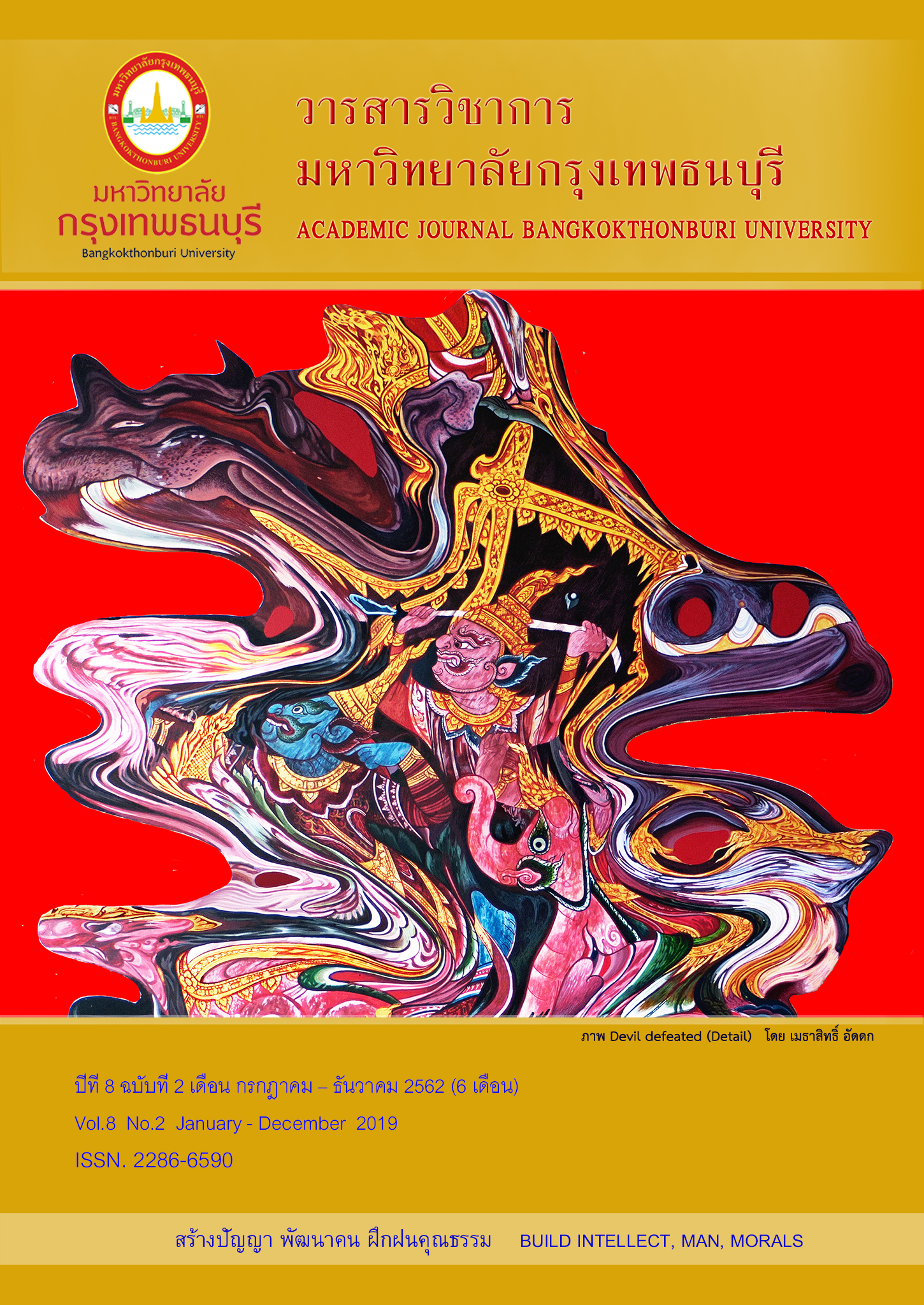Marginal People: Thai-Malayu Residents in the Three Southernmost Provinces
Main Article Content
Abstract
The ethnic groups and being marginal people are considered as a way to create border for mutual ethic based on relationship systems among various groups in society. These kinds of relationships are often arranged in opposite ways where one party is over another, or referred to as dual relation. Creating border of mutual identity is not only gathering those of the same identity but also the endeavor to change identity of marginal people to be more like the main stream in society while those who refuse to change will be boycotted. In this regard, the ethnic groups and being marginal people are not included as social procedures or relations naturally happened, yet, it is based on power relation controlled, created, interpreted by a majority of society. Furthermore, the mutual identity is referred to as an identity of the majority while those identities which are not the same are classified as marginal identity which the existence will soon be faded away and be viewed as a matter that causes problems. In this article, the author mentioned about being marginal of Thai-Malayu Residents in the Three Southernmost Provinces of Thailand who live in the remote area, far from the city, and the process of causing the ethnic group under relationship between religion and culture that taken as pretext and condition of conflicts. Because Thai-Malayu Residents in the Three Southernmost Provinces are totally different from the majority of society such as ethnic, religion, language and culture. These are based on different identities and unchanging lifestyle of the Thai-Malayu Residents. So, we have to understand deeply.
Article Details
References
Chaiwat, Satha-Anand. (2008). Imaginary Land: State and Violence in Southern Thailand. Bangkok : Matichon Publishing.
Harrell, Stevan. (1995). Civilizing projects and reaction to them. Seattle : University of Washington Press.
Krittaya, Atchawanitchakun. (2007). The Thai state and the policy of reproductive and reproductive health changes in migrant workers. Nakhon Pathom : Mahidol University.
Laungaramsri, Pinkaew. (2003). Ethnic identity and marginalization. Bangkok : Sirindhorn Anthropology Center.
Likhit, Dhiravegin. (1978). Minorities in Thailand. Bangkok : Phrae Phittaya.
Naphaporn, Ratiwanichyapong. (2009). The road to social security. Bangkok : Female Friend Foundation.
Patcharee, Klommeung. (2016). Comparative study of the minority policy of the Thai government and the Malaysian government. Doctor of Philosophy Program in Politics, Ramkhamhaeng University.
Royal Academy. (2007). The Royal Institute Dictionary, 1999. (6th edition). Bangkok : Charoencharoen.
Srisak, Wanliphodom. (2007). Recount the legend under. Nakhon Pathom : Center for Peace Studies and Development Mahidol University.
Suchit, Wongthet. (2004). Pattani in 'Sri Wichai' is older than Sukhothai in history. Bangkok : Matichon.
Surichai, Wankaew. (2007). Marginalized people from ideas to reality. Bangkok : Publisher of Chulalongkorn University.
Suriya, Smuthkhop and Phathana, kittiahasa. (1999). Anthropology and globalization: collection of articles. Nakhon Ratchasima : Rajamangala University of Technology Suranaree.
Thongchai, Winichakun. (2002). Tales from the border. Art and culture. 23(12), 70-83.
_________. (2005). Skip beyond democracy after 14 October. Bangkok : October 14 Foundation.


